As we move through June, markets are navigating a landscape shaped by steady economic data, cautious central banks, and rising geopolitical risks—particularly around trade and tariffs. Here's what's shaping investor strategy this month.
Equities: Resilient, But Sensitive to Headlines
Global equity markets have held their ground, with the S&P 500 and TSX Composite regaining their drops after Liberation day. Gains in technology, infrastructure, and AI-driven innovation continue to support broader performance, while interest-sensitive sectors like real estate and discretionary retail remain challenged.
However, volatility has increased. Investor sentiment is being shaped by both central bank guidance and headline-driven risks—particularly from renewed U.S. trade tensions.
Central Banks: Holding but, But Not Cutting (Yet)
The U.S. Federal Reserve and the Bank of Canada both opted to hold interest rates steady this month. Inflation is moderating but remains elevated in services, and both central banks have emphasized a cautious, data-driven path forward. Markets are now pricing in one potential rate cut before year-end, depending on upcoming economic data.
Bond Markets: Steady Yields, Mild Credit Risk
Bond yields remain in a holding pattern. U.S. 10-year Treasuries hover around 4.3%, and Canadian yields slightly below that. Short-term fixed income remains attractive for income-seeking investors. Credit spreads have widened slightly as markets digest tariff-related risks.
Tariffs & Trump: Trade Uncertainty Resurfaces
Trade policy is back in the spotlight with former President Trump making significant moves:
- Steel & Aluminum Tariffs: Now at 50%, with only the UK exempted.
- Automotive Sector: More tariff increases are under discussion, raising concerns for global supply chains.
- Targeting Allies: Canada, the EU, Japan, and South Korea are potential targets as Trump leans into bilateral trade enforcement.
- China Deal: A tentative framework holds 55% tariffs in place but opens doors to U.S. access for rare earths and academic cooperation.
- Legal Landscape: The U.S. Appeals Court has temporarily upheld key Trump-era tariffs; a full hearing is scheduled for July 31.
These measures are already impacting corporate earnings. Major automakers report billions in added costs, and retaliation from trade partners—including Canada—may further escalate tensions.
Investment Strategy: Quality Matters More Than Ever
In a market increasingly influenced by politics and policy, fundamentals remain key. Investors should:
- Focus on high-quality companies with proven earnings, stable cash flow, and low levels of debt.
- Look for businesses with strong pricing power and domestic supply chains to reduce trade exposure.
- Maintain diversification across asset classes and geographies to manage short-term volatility.
- Consider trimming exposure to sectors heavily reliant on global trade or high-cost imports.
Bottom Line
Despite geopolitical tension and policy uncertainty, the market continues to reward resilience. Trade disputes may bring short-term disruption, but long-term fundamentals—like company quality, balance sheet strength, and strategic positioning—will drive outcomes.
Plan for the long term, but keep an eye on near-term risks.
Source: Bloomberg


















